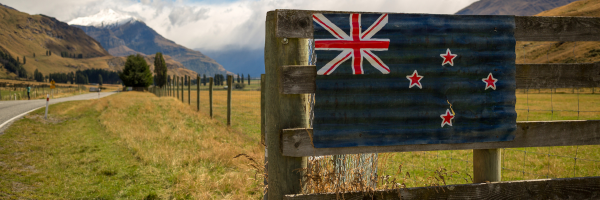
How To Move from USA to New Zealand: All You Need to Know
Moving to New Zealand from the USA involves securing the right visa, handling moving logistics, and adjusting to the ‘Kiwi’ life.
In this guide, we cover everything from visas, including work, student, and retirement visas, to moving costs, housing, and cultural differences, ensuring a smooth transition for those relocating to New Zealand.
Key Takeaways
- There are various visas for US citizens moving to New Zealand, including work visas, student visas, retirement visas, and pathways to permanent resident visas.
- Careful planning and budgeting are essential for a successful move; understanding the costs associated with shipping, accommodation options, and daily living expenses can ease the transition.
- Building a social network and embracing Kiwi culture through outdoor activities, local events, and community involvement can enrich your experience while settling into life in New Zealand.
Understanding Visa Options
Moving to New Zealand from the United States involves navigating various visas suited to different immigration purposes. Whether you intend to work, study, or retire, selecting the appropriate visa type is key. For American citizens, there are numerous pathways to live, work, and study in New Zealand, ensuring your move is a smooth transition.
Before arriving in New Zealand, you’ll need to make a visa application online via the New Zealand Government website. Understanding the different visa categories can seem daunting, but matching your immigration purpose to the correct visa is important.
Employment Permits
New Zealand offers various work visas, depending on your qualifications and industry demand. High-demand roles on the Green List is designed for highly-skilled individuals in industries such as manufacturing and healthcare.
If your role is on the Green List, and you meet the necessary qualifications, you could apply for the Straight to Residence Visa or Work to Residence Visa, which can provide a pathway to residency either immediately or after two years of work.
Alternatively, the Skilled Migrant Category Resident Visa allows individuals who work or have a job offer from an accredited employer to apply for residency. To qualify, you need a minimum of 6 points for your skills and work in New Zealand.
For those in specific roles, like a Ship’s Master or Deckhand, the Transport Work to Residence Visa is also an option.
Finally, the Working Holiday Visa allows American citizens to work in New Zealand for up to 12 months, though you cannot take on permanent employment while on this visa.
Student Visas
There are several options for American students who wish to study full-time in New Zealand. The Fee Paying Student Visa is available for international students who wish to study. To qualify, you must enrol in a course at an approved educational provider and pay the full cost of the course.
This visa allows students to study at schools, tertiary institutions, or for English language training, including programs in early childhood education. Individuals must study full-time in New Zealand for more than three months, and students are able to work part-time during the academic year.
The Working Holiday Visa also allows American students to study and train in New Zealand for up to 6 months.
Retirement Visas
For those aged 56 or over, retirement visas are more difficult to apply for, but there are options that allow you to live in New Zealand if you meet certain financial or familial criteria.
The Parent Retirement Resident Visa is available for parents of New Zealand citizens or permanent residents. To apply, you must have an annual income of NZ$60,000, invest NZ$1 million for four years, and have NZ$500,000 to live on.
For those without a New Zealand citizen or resident family member, the Temporary Retirement Visitor Visa allows individuals aged 66 or over to stay in New Zealand for up to 2 years. This visa requires an investment of NZ$ $750,000 and annual income of NZ$ $60,000 or more.
Preparing for the Move: Cost and Logistics

Planning and budgeting carefully is essential when preparing for a move to New Zealand. Moving costs from the USA to New Zealand can vary widely, with factors like the size of your home, the services you require, and the shipping methods chosen significantly impacting the overall cost, as well as transportation costs once you arrive in New Zealand.
Reducing the amount of belongings or cutting back on non-essential expenses can lower costs and help to simplify the process.
Shipping belongings
UPakWeShip provides cost-effective solutions, like self-packing options and U Crates, simplifying customs procedures for a hassle-free move. Our U-Crate services come in three sizes to accommodate different needs:
- U-Crate 50: Ideal for small moves or single-room apartments, the U-Crate 50 has a capacity of 50 cubic feet. It is perfect for shipping smaller items and personal belongings.
- U-Crate 100: This medium-sized option offers 100 cubic feet of space, suitable for larger apartments or small houses. It can hold a more substantial amount of furniture and household goods.
- U-Crate 200: The largest option, the U-Crate 200, provides 200 cubic feet of capacity. It is designed for full household moves, accommodating a significant volume of items, including large furniture pieces.
You must also complete necessary customs forms and declarations, and ensure your items meet biosecurity requirements when preparing for a move to New Zealand:
- Unaccompanied Personal Baggage Form: Complete the Unaccompanied Personal Baggage form from the New Zealand Customs Service.
- Customs Invoice: You’ll need to complete and send a customs invoice with your shipment.
- Biosecurity Declaration: Complete a biosecurity declaration, as required by the Ministry for Primary Industries (MPI).
- Declare Contents: Declare the contents of your household goods to the MPI.
- Provide Documentation: Provide documentation, including a packing list and shipping documents.
- Check for Prohibited and Restricted Items: Be aware of any prohibited or restricted items that cannot be imported into New Zealand.
- Check MPI Website: Visit the Ministry for Primary Industries website for up-to-date information and requirements.
These options ensure that you can find a solution that fits your specific shipping requirements, making the process more efficient and cost-effective.
Finding Accommodation
When moving to New Zealand, choosing a place to live involves balancing your lifestyle preferences, job opportunities, and the cost of living. The lifestyle, climate, and pace of life vary across the country, so it’s important to explore regions in both the North and South Islands to determine which is right for you.
Auckland is the largest city in New Zealand and the most multicultural. Half of all new migrants choose to settle here. It offers great job opportunities, but it comes with high living costs. Wellington, the capital city, is known for its scenic beauty, with quirky houses perched on hillsides and stunning views of the harbour.
For those considering the North Island, Waikato is one of the richest agricultural areas in the world, and offers a mix of rural and urban living. The Bay of Plenty is renowned for its beautiful beaches and sunny climate, making it a popular choice for beach lovers. Taranaki is best for affordable housing and diverse landscapes.
In the South Island, Nelson-Tasman is one of the sunniest areas in New Zealand and perfect for those who enjoy outdoor activities. Canterbury offers a strong job market, and Southland is known for its relaxed pace of life and friendly communities, providing a slower and peaceful living experience.
There are many ways to find rental properties in New Zealand, from suburban homes, rural living, apartments, and student houses.
Websites like TradeMe and real estate agencies are commonly used for finding housing in New Zealand. Facebook also has numerous flatmate-wanted groups and listings across various cities, making it easier to find accommodation and connect with new people.
Rental prices vary widely across New Zealand, with major cities typically being more expensive than rural areas. The average rent for a one-bedroom apartment in the city centre is around $1,091 USD per month.
Setting up Finances in New Zealand
When you move to New Zealand, one of the first steps in setting up your finances is to open a bank account. It’s recommended to open an account before you arrive, but you can also do this once you have arrived in New Zealand.
For American citizens moving to New Zealand, ANZ, ASB, BNZ, Kiwibank, and Westpac are commonly used banks, with some offering specific services for expats or international students to make the transition smoother.
Another essential step it applying for an Inland Revenue Number (IRD), which you will need for tax-related purposes. Whether you are earning income from a job, benefit, or investment, the IRD number is crucial for paying correct taxes and filing your end-of-year tax return.
Navigating the Immigration Process to New Zealand

Immigration Preclearance
Before travelling to New Zealand, all passengers must complete a New Zealand Traveller Declaration (NZTD). This declaration is necessary for everyone arriving in New Zealand and includes some items that must be declared if you’re bringing them into the country.
Arriving in New Zealand
For US citizens who are members of the Global Entry program, you can use dedicated lanes at Auckland, Wellington, and Christchurch International Airports to streamline your border processing.
To use these lanes, you’ll need to present your Global Entry card, US passport, and arrival documentation. This initiative is part of an agreement between the US and New Zealand to improve the border experience for travellers flying between the two countries.
Even with Global Entry, American citizens will still be subject to standard customs, immigration, and biosecurity processes when arriving in New Zealand.
New Zealand Residence Permit
Obtaining a New Zealand resident visa as a US citizen requires meeting certain criteria. These may include holding a work visa that leads to residence, having a job offer from an accredited employer, or qualifying through the Skilled Migrant Category.
Adjusting to Life in New Zealand

New Zealand’s local culture is shaped by both Māori and European traditions and is generally laid-back and less formal compared to American culture. There is a strong emphasis on community and a balanced work-life environment.
Cultural Differences
New Zealand is known for its friendly, easy-going people and a relaxed approach to life, whereas the USA tends to have a more competitive, individualistic culture that emphasises achievement and ambition.
Communication in New Zealand is often direct but with kindness, whereas Americans are usually opinionated and to the point. Kiwi culture also emphasises the concept of Manaakitanga, which involves hospitality, kindness, and generosity.
New Zealand prioritizes leisure, relaxation, and a good work-life balance, while the USA culture focuses on having a strong work ethic. Tipping is also not customary in New Zealand, unlike in the US, where it is expected in many service industries.
Tea culture in New Zealand is prominent, with morning and afternoon tea being common social events.
Health Insurance
For American citizens living in New Zealand, healthcare is available through both public and private systems. The public healthcare system is subsidised for citizens, residents, and some work visa holders, but non-residents are required to pay for treatment.
Non-residents of New Zealand are encouraged to purchase private health insurance before arriving, as it can help with the costs of hospitals or specialists. New Zealand’s Accident Compensation Corporation (ACC) provides coverage for medical care related to accidental injuries.
Building a Social Network
Building a social network in New Zealand is important for both personal and practical reasons. When you’re new to the country, it’s often easier to connect with people from your own culture, but over time, it’s important to reach out to the wider Kiwi community. Look for common ground, such as shared hobbies or sports, to build connections.
Resources such as the New Zealand Newcomer Network can be especially helpful in your early days, allowing you to meet new people from other countries who are going through similar experiences.
Job Hunting in New Zealand
Finding work in the New Zealand job market often involves a mix of networking, online job boards, and recruitment agencies. Many job seekers also use Facebook groups dedicated to backpacker jobs and general employment opportunities.
Popular job search websites include TradeMe Jobs, Seek, and WorkHere. WorkHere is tailored specifically for foreign applicants looking to work in New Zealand. LinkedIn is also a valuable tool for networking and professional job opportunities.
Crafting your CV and Cover Letter
New Zealand employers prefer short, easy-to-read CVs that highlight relevant skills and experience. Most may quickly scan your CV before deciding whether to read it in detail, so it should make a strong first impression.
Employers typically look for technical and personal skills, work experience, qualifications, and any community or volunteer experience. It’s important to provide brief examples of how you’ve applied your skills. If your previous employers are overseas, adding a short description of each company, including its size, location, and a website link, can be helpful.
Most employers expect a cover letter, which should introduce yourself, outline relevant skills and experience, and explain why you’re the right fit for the role. A cover letter should be no longer than one page and written in a formal, persuasive style.
Industries in Demand
New Zealand hasan ongoing demand for skilled workers in various fields. Some of the top roles sought after in 2025 include registered nurses, general practitioners, teachers, electricians, plumbers, civil engineers, ICT professionals, accountants, midwives, and other medical specialists.
The country even has unique roles on its shortage lists, including jockeys and skydiving instructors.
If you’re applying for work in these fields, you may have a higher chance of securing employment and obtaining permanent residency.
Exploring New Zealand’s Lifestyle and Leisure

New Zealand is perfect for outdoor lovers, culture seekers, and food enthusiasts. From hiking the Tongariro Crossing to exploring Māori heritage through traditional haka performances and viewing the vibrant arts scene, there is plenty to explore and enjoy in New Zealand.
New Zealand’s cities are known for their diverse food scenes and buzzing nightlife. Auckland offers everything from street food markets to fine dining, with lively areas like Viaduct Harbour and Ponsonby. Wellington is famous for its coffee culture and hidden cocktail bars, while Queenstown combines high-end restaurants with late-night entertainment.
Long-Term Considerations and Permanent Residency
If you’re planning to stay in New Zealand long-term, there are several pathways to residency.
The Skilled Migrant Resident Pathway is ideal for those with in-demand skills. The Green List & Work to Residence Visas offer options for immediate residency or require a period of work in New Zealand first. If you’re looking to become a citizen, Citizenship by Grant is typically available after five years of residency, provided you meet certain criteria.
No matter your plans, New Zealand offers an incredible lifestyle whether you’re visiting, working, or settling down for good.
Summary
Moving to New Zealand is an exciting opportunity, but it requires careful planning. This guide has covered everything from visa options and job prospects to housing, healthcare, and cultural differences. By understanding the requirements and preparing in advance, you can make your transition as smooth as possible.
Whether you’re moving for work, study, or a fresh start, New Zealand is a beautiful country that offers a stress-free, high-quality of life and welcoming community groups.
With the right approach, you’ll be settling into your new life in no time.



No Comments